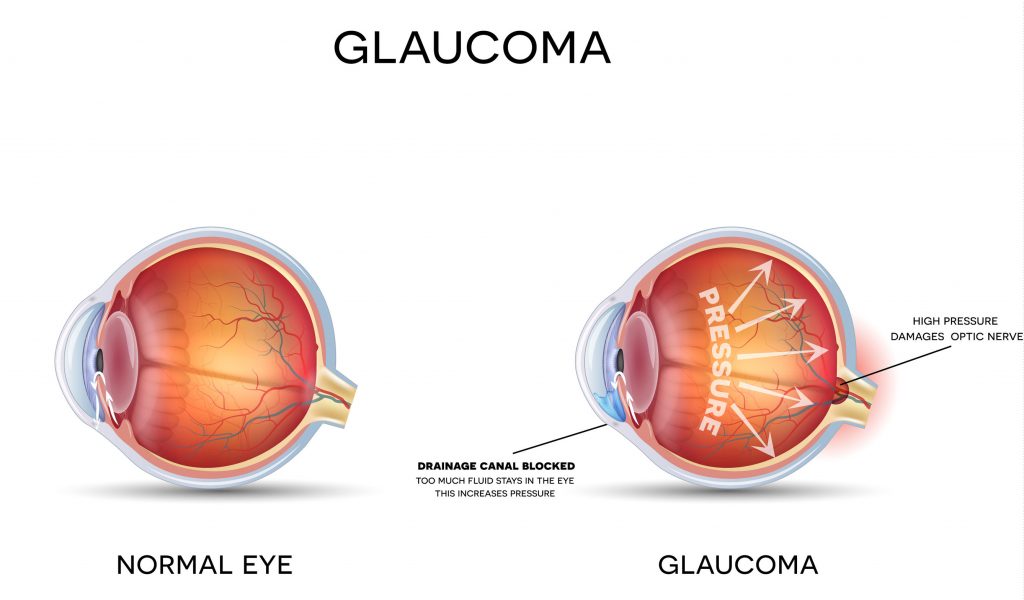Glaucoma Diagnosis and Management
Glaucoma refers to a group of conditions that rob people of their vision by damaging the optic nerve. Most types of glaucoma involve high pressure inside the eye. Normal tension glaucoma does not. The most common type, open angle glaucoma, does not produce symptoms until permanent damage has already occurred. Regular eye exams can catch it early so you can avoid or delay vision loss. Angle-closure glaucoma is a medical emergency, and it does produce symptoms.
Types of Glaucoma
There are many types of glaucoma:
- Primary open-angle
- Normal-tension
- Acute angle-closure, also called narrow-angle, or closed-angle
- Congenital
- Pigmentary
- Secondary
Glaucoma Symptoms
Open-angle glaucoma progresses slowly and does not produce symptoms until damage has already occurred. Treatment cannot reverse the damage, but can help prevent or delay further vision loss. Symptoms include:
- Loss of peripheral vision
- Blind spots in peripheral or central vision
- Tunnel vision
Acute angle-closure glaucoma does produce symptoms. It is sometimes referred to as a glaucoma attack. It happens when intraocular pressure (IOP) rises very quickly. This damages the optic nerve causing vision loss. Angle-closure glaucoma requires emergency medical treatment. Symptoms include:
- Severe headache
- Nausea and/or vomiting
- Eye pain
- Aching around the eye
- Eye feels hard and tender
- Eye redness
- Blurry or hazy vision
- Seeing halos around lights
- Sudden vision loss
- Dilated pupils
Glaucoma Treatment
At this point, there is no cure for glaucoma, but progress is being made and a cure may be on the horizon. In the meantime, glaucoma treatment focuses on preventing damage to the optic nerve by reducing IOP. Glaucoma treatments include:
- Eyedrops
- Oral medications used in combination with eyedrops when eyedrops do not lower IOL enough
- Traditional surgery
- Laser surgery
You may have heard about marijuana as a treatment for glaucoma, long before states began legalizing medical marijuana. If this is an option you wish to explore, have a serious conversation about it with your ophthalmologist. It may be an option for you, depending on where you live and other factors. Marijuana does reduce IOP, but it is not a simple matter of smoking pot instead of using your eye drops. You need the right product and dosing, and you need to know if it will truly be effective for you.
LASIK and Glaucoma
If you have, or are at risk of developing, glaucoma, you may still be able to have LASIK surgery or another type of laser vision correction such as PRK. There are special considerations. You will need close monitoring after surgery, for instance. Talk openly with your LASIK surgeon whether you have been diagnosed with glaucoma, have a family history of glaucoma, or other risk factors. Choose a LASIK surgeon who has experience operating on glaucoma patients.
If you have glaucoma, or are at risk for developing glaucoma, please search this directory for a list of ophthalmologists near you.

